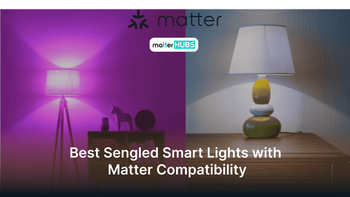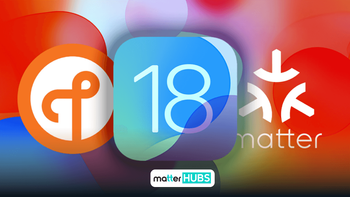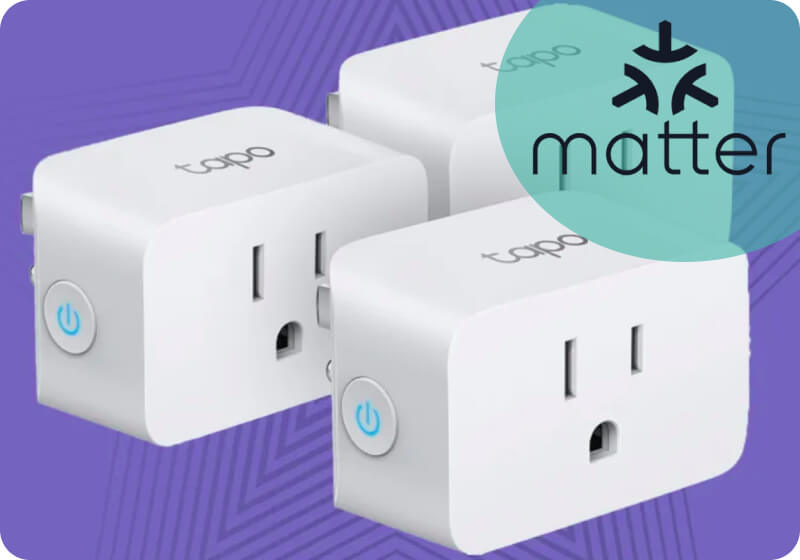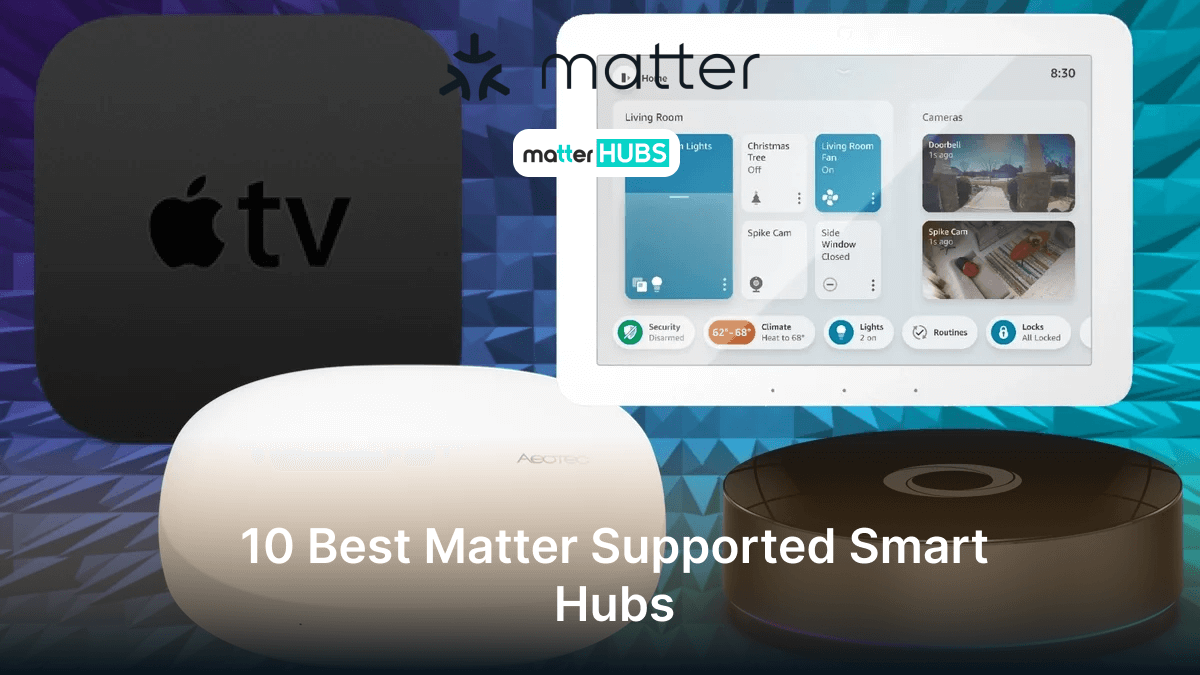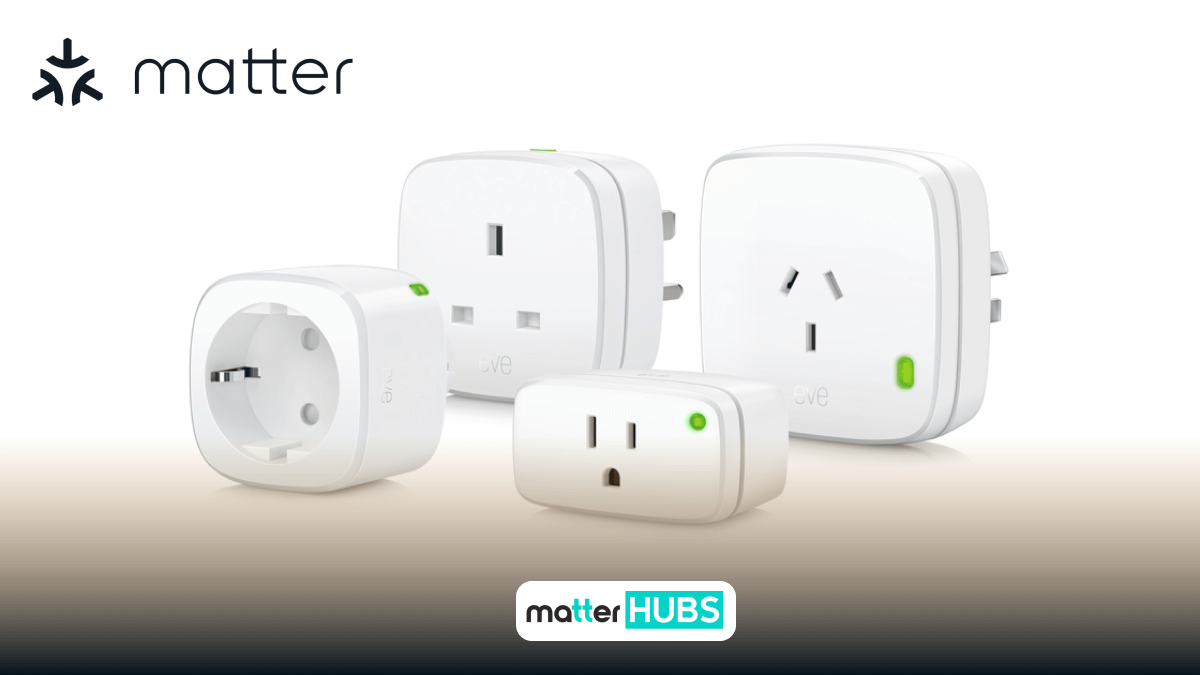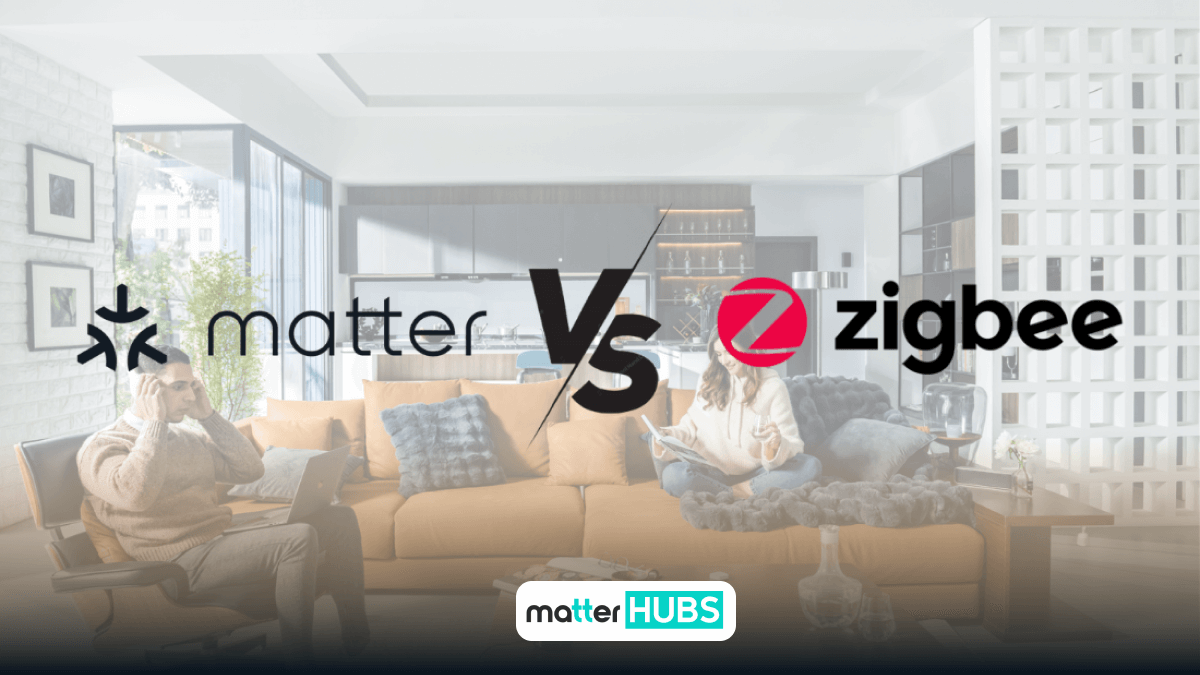
Matter vs. Zigbee: Difference between Matter and Zigbee
a year ago • 4 min read

Matter vs. Zigbee! You need to know the difference between Matter and Zigbee before buying Smart Home devices. Matter and Zigbee are two types of protocols and the main difference between Matter and Zigbee is operational OSI layers, scalability, compatibility and topology.
In this article we will explain Matter and Zigbee protocols deeply. After reading this article you can better decide which option is best for your home.
What are Matter and Zigbee?
You know! Some users prefer Matter over Zigbee. So first, let’s explore what Matter and Zigbee are.
Matter Protocol
Matter acts as a common language for smart homes and IoT devices. It uses Internet Protocol (IP). And matter is an open-source standard that helps devices work better together. It's also a great way to connect and protect your devices.
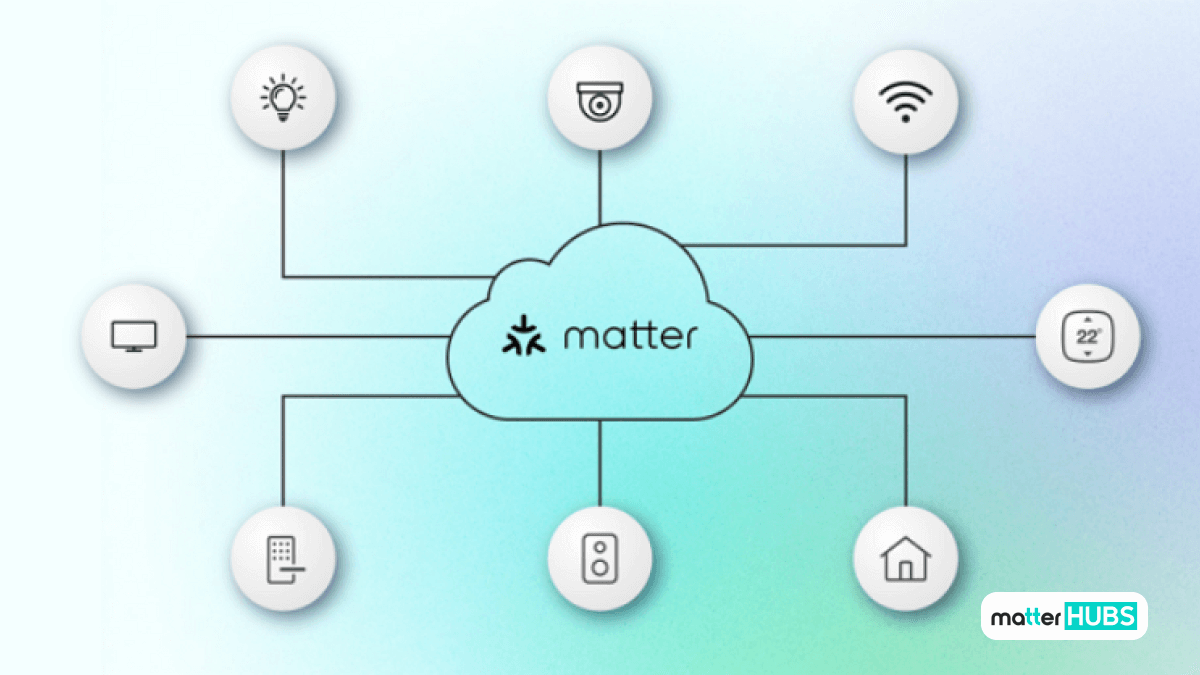
Key Features of Matter
- Utilizes IP based communication
- Provides end to end encryption
- Supports multiple networking technologies
- Emphasizes interoperability among different devices
Zigbee
Zigbee is a wireless communication protocol. It is designed for small-scale projects like home automation. It is made using small digital radios. Zigbee is a simple and cost-effective solution for connecting low power devices. It has become the protocol for many smart home setups.
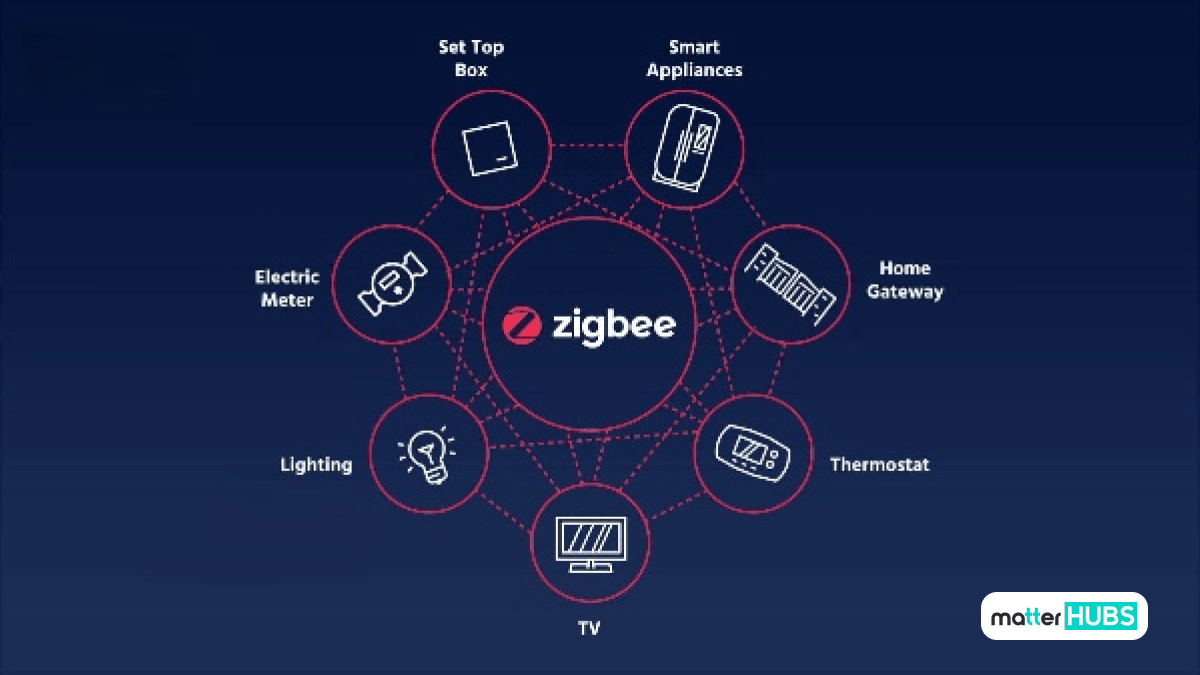
Key Features of Zigbee
- Robust mesh networking capabilities which extend network range
- Low power consumption which extends battery life
- Proven security mechanisms for secure device communication
Comparison of the Matter vs. Zigbee
| Protocol | Matter | Zigbee |
|---|---|---|
| Operating OSI layers |
|
|
| Interoperability | Establishes interoperability among different devices and platforms | Only provides interoperability among Zigbee-compatible devices |
| Topology | Ethernet LAN, Wi-Fi LAN, Thread and Bluetooth Low energy | Mesh networking |
| Scalability | Designed to scale from small to large networks | Suitable for small to medium-sized networks |
| Authentication | Employs strong authentication mechanisms, such as public-key cryptography and certificates | Uses access control mechanisms, pre-shared keys, and device-specific keys for authentication |
| Licensing fee | Free | Free |
| Membership | 29 promoters and 281 participants | More than 300 members |
Zigbee or Matter, which one is Better?
Matter
Pros
- Easy to purchase and use
- Multi admin capability
- Local control over device
Cons
- Limited supporting devices
- Basic control of devices
- Lack of time for testing
Zigbee
Pros
- High node support
- Low bandwidth consumption
- Easy for installation and control
Cons
- Low transmission rate
- Potential threats to security
- Higher Cost
Smart Home Bridges Differences: Matter vs Zigbee
A Matter bridge can integrate non-Matter devices into the Matter network. This capability allows seamless control of devices using a Matter-enabled app or controller.
Zigbee bridges act as a communication hub between Zigbee devices and other smart home products. Also, it is acting as intermediaries that connect Zigbee-enabled devices.
| Feature | Matter Bridge | Zigbee Bridge |
|---|---|---|
| Protocol Compatibility | Help devices and seamless communication with Matter protocol. | Integrates Zigbee protocol devices within Zigbee networks. |
| Ecosystem Support | Supports Matter-certified devices. | Designed for Zigbee devices to enhance connectivity within Zigbee ecosystems. |
| Functionality | Provides a unified interface for Matter devices. | Offers dedicated management features for Zigbee devices. |
| Interoperability | Facilitates interoperability across multiple matter-certified brands and products. | Facilitates compatibility and efficiency in Zigbee networks. |
Best Matter Zigbee Hubs
If you are looking to find the best Matter ZigBee hubs, here is the list of Matter Zigbee hubs:
Aqara Hub M3
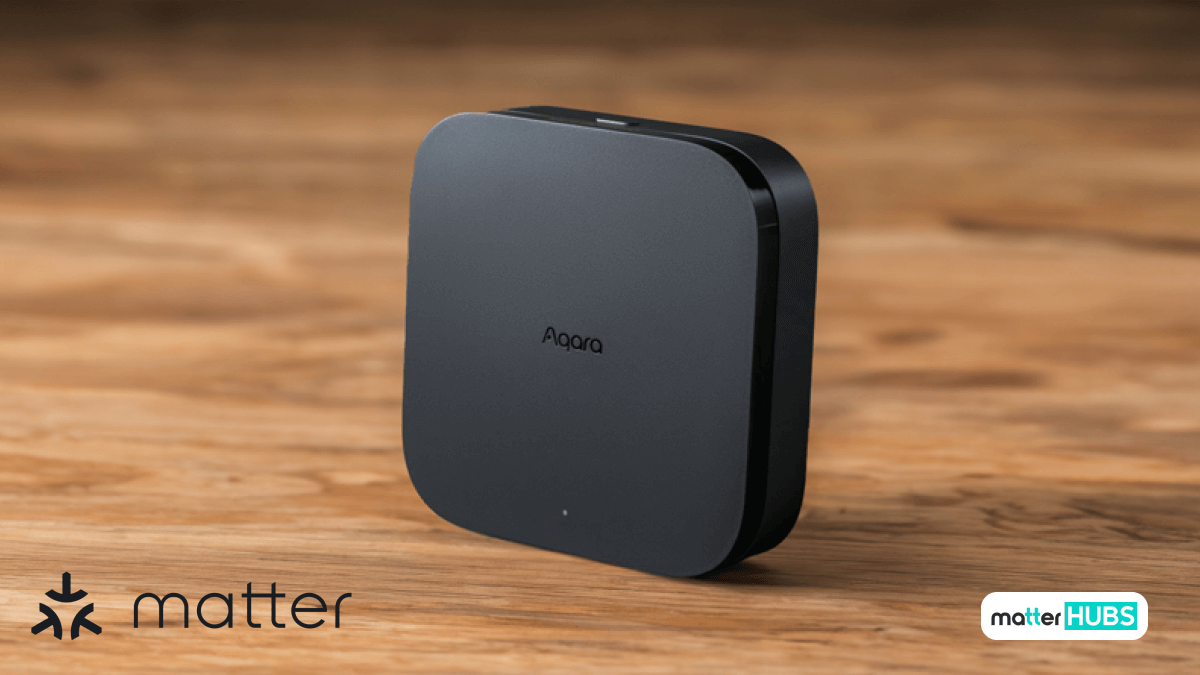
The Aqara Hub M3 supports Matter, Thread and Zigbee. It works with major platforms like Apple HomeKit and Google Home. It is also compatible with voice assistants like Siri, Alexa and Google Assistant.
- Zigbee 3.0 and Matter Compatibility
- Multi-Platform Integration
- Dual-Band Wi-Fi Support
- Built-In Speaker and RGB Light
- Enhanced Security
Hubitat Elevation C-8 Pro
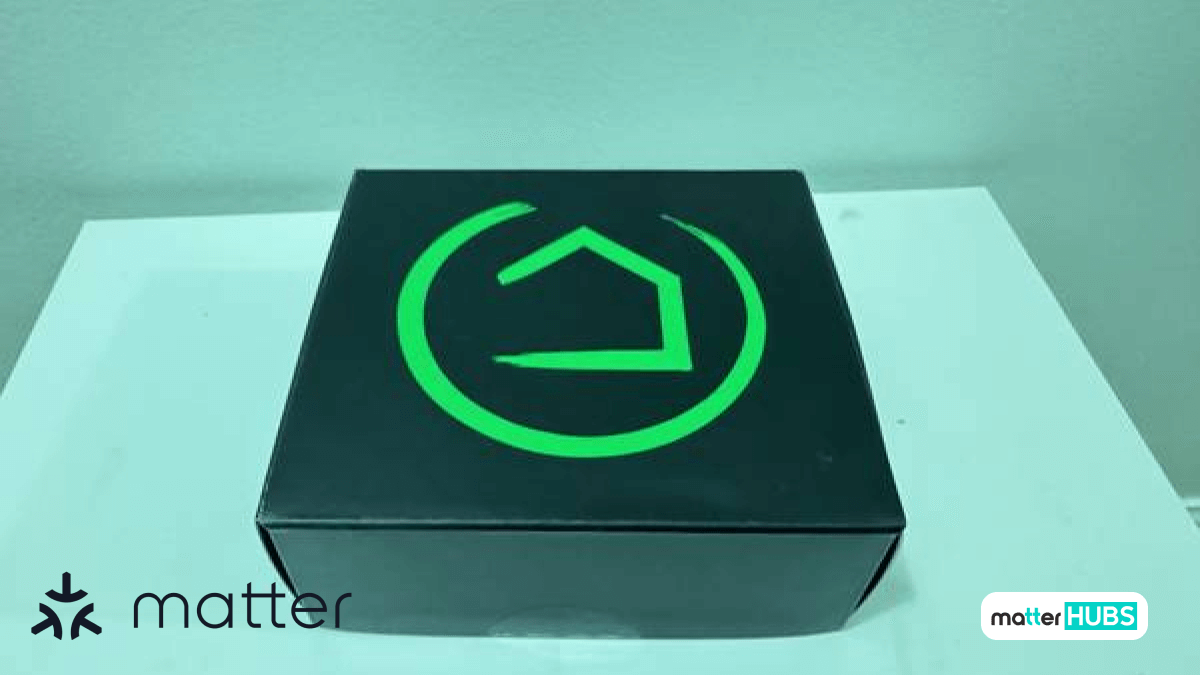
This hub connects with Matter, Z-Wave and Zigbee protocols. Also, voice control is possible with popular voice assistants like Google Assistant, Alexa, and Siri.
- Local Processing
- Advanced Automation Capabilities
- Zigbee 3.0 Compatibility
- Supports Multiple Ecosystems
Conclusion
When we compare Matter and Zigbee protocols, we can clearly see that many people focus on Matter protocol when considering interoperability and ease of use across multiple brands. Therefore, I prefer to connect your Smart home devices with Matter support.
However, we hope that you will be able to choose the most suitable system between Matter and Zigbee after reading this article!
FAQs
Matter has not yet completely replaced Zigbee.
The main difference is Zigbee is similar to Thread. But it is not directly compatible with Matter.
No, there's no direct compatibility between ZigBee and Matter. But you can connect ZigBee devices to Matter with a bridge or gateway device.

